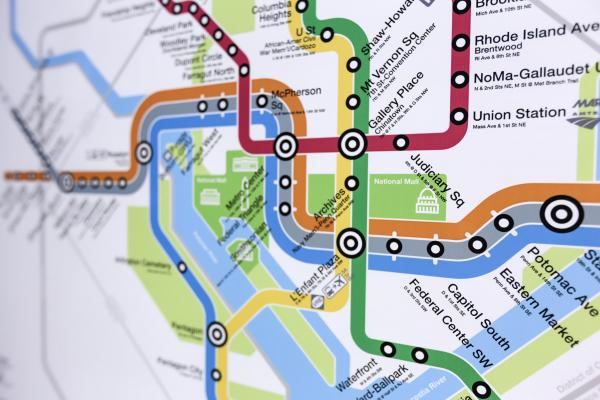WHEN WE chose the name “Sojourners,” we didn’t realize how often we would end up earning that brand. We’re on the move again. Sojourners is moving our office to the Stanton Park neighborhood of Washington, D.C., a five-minute walk from the U.S. Capitol.
A move like this always makes me reflect deeply about our vocation in reference to our location.
When Sojourners moved to D.C. from Chicago in 1975, we deliberately moved to one of the poorest parts of the city and consciously compared our new location to the “catacombs,” which were the poorest sections in Rome. We would move to the outside of power, “the other Washington,” and from there seek to relate to the insiders of political power in official Washington.
Right away, we got very involved in those poor neighborhoods with our new neighbors, whose needs and voices directly shaped our work. We also traveled all over the country and around the world to places where people were asking for help in putting their faith into action, especially in the many places where marginal people had been left out, forgotten, and oppressed. Both locally and globally, it was the poor and vulnerable and those working alongside them whose “voices in the wilderness” filled the pages of Sojourners magazine and, eventually, our digital spaces.
During those years, our voice became increasingly heard in the public square, regularly listened to by millions of people in the media and those in Washington, both in Congress and the White House. This has now become an important expression of our mission.
The Christian community called Sojourners has been led on a long pilgrimage (45 years so far) learning how difficult and transforming it really is to love one another, to love our neighbors close to home and around the world who have been oppressed, and to honestly and courageously speak truth to power. Now we take our voice, and the voices of those that are seldom heard in Washington, D.C., with our presence to the shadow of the Capitol building. Learning what a prophetic presence and voice could now mean in our new location is our new task — turning our face to Jerusalem. How do we best lift and leverage the voices of those on the margins to confront and change political power?
Washington’s catacombs are being gentrified, and our old neighborhood of Columbia Heights has seen nightly gunfire replaced with Best Buy and Bed, Bath, & Beyond. So too has the shape and place of our own ministry changed. What began as a small intentional community has become a much larger network and movement of believers who are called “to articulate the biblical call to social justice, to inspire hope and build a movement to transform individuals, communities, the church, and the world.”
ONE OF THE things we have learned along the way is the difference between kinds of power. What we mostly see in official Washington is power derived from status, wealth, job title, and connections — power derived from human beings. But there is a better kind of power, embodied by the Greek word dunamis, which appears 120 times in the New Testament. It can be loosely translated as “power,” or “strength,” or “ability.” English words such as dynamite, dynamo, and dynamic all derive from dunamis. It is a word with rich layers of meaning.
It’s important to note that dunamis is not just any power; rather, it often refers to miraculous power, or marvelous works, or moral and spiritual power. Perhaps most important, dunamis refers to the inherent power residing in a thing by virtue of its nature. Specifically, the power of God is God’s innate dunamis, which is part of God’s own nature. As people of faith, we believe that it is not through our own power but God’s that we are able to do what really changes things. God confers on us God’s dunamis through the Holy Spirit, and it is only through that God-given power — which is God’s own power — that we can accomplish good things in this world.
At their best, the most powerful movements for change have tapped into this kind of power — human beings animated by moral and spiritual power that changes lives and history. Our new location will be a place that aspires to that kind of spiritual power, to evoke and sustain it in the shadows of the traditional power and wealth of this city, to draw lawmakers and their staffs who seek a different and better moral logic, to train activists who believe that faith can indeed change things, and to be a place that brings moral voices to be heard by the political voices.
Please pray that such power — dunamis — will motivate and continually transform Sojourners and the issues we are called to take on. And please, come visit us when you come to Washington!

Got something to say about what you're reading? We value your feedback!

